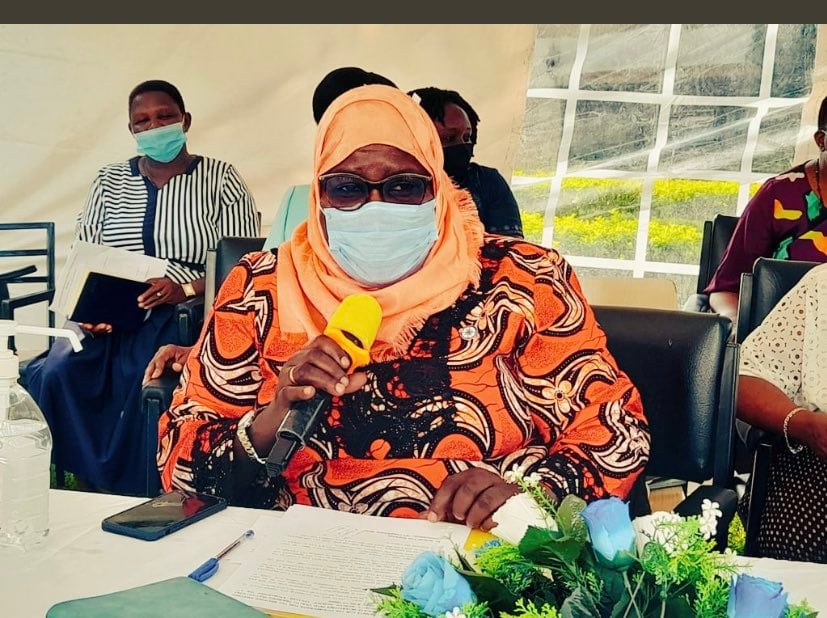Medical company to train Ugandan biomedical engineers

Damalie Kabejja,Manager, laboratories at KPC Cotec Medical company trying to examine a urine specimen in Kampala
What you need to know:
- Dr Safinah Kisu Museene, the Commissioner for Health Education and Training Institutions in the Ministry of Education said that recently started training Biomedical Engineers but admits that they are still very few.
After identifying a skills gap among Ugandan biomedical engineers, a medical company has offered refresher training.
KPC COTEC Medical Company (KCMC) is a Ugandan-based company whose aim is to increase access to speciality medical services.
The company’s laboratory manager, Ms Damalie Kabejja, said the offer follows alleged failure by Ugandan engineers to install and re-set the state of art laboratory equipment that was recently imported from China.
The equipment include a PCR machine used to do PCR test for viral diseases such as Herpes, HIV and Hepatitis B and a chemistry analyser that does liver, renal and kidney function tests.
“We hired about three different groups of bio-medical engineers on separate days, they all did not succeed. We had to hire someone from Nairobi, Kenya,” Ms Kabejja said.
“We are currently holding discussions with the Ministry of Health to see how this can easily be done. If we have skilled people, the services will be much cheaper if we use Ugandans,” she said.
Dr Safinah Kisu Museene, the commissioner of BTVET at Ministry of Education and Sports, said her ministry was aware of the skills gap that exists, adding that they had come up with an innovative way of bridging the gap.
Biomedical engineers are professionals who install, maintain, or provide technical support for biomedical equipment in health facilities.
Ms. Kabejja who also said that in Uganda, a skills gap exists among some laboratory technicians and technologists the competencies in this area were still wanting.
“Someone can graduate but they cannot even do a simple malaria test. Some students do not get the chance to practice what they are studying while in the training institutions. You may be sent to Mulago to be trained by a health worker attending to a huge number of patients and most times ,you will not be able to learn because the person may not get time to attend to you,”she said.
“If you are employing a laboratory person regardless of whether they have been in the field or not, train them. They may be coming from a facility that has a lower scope of tests. Then you are employing them in a diagnostic centre that is fully established with a bigger scope of tests. Sometimes we think, these people know everything and when they get on the machine, they spoil everything, “she adds.
She said that wrong results from the laboratory are likely to mislead the clinician who will prescribe treatment for a wrong condition, putting the health of a patient at risk.
She noted that all the machines at KPC COTEC Medical Company have been well tested and the medical team has the required skills to run them.
“The basis of treatment in medicine, the origin is basically laboratory. If a laboratory person provides wrong results, it definitely misleads the clinician who will give wrong medication which may either lead to death of a patient or complications, “she said.
The company’s dream is to expand the services to the rest of Africa and beyond.
Dr Safinah Kisu Museene, the Commissioner for Health Education and Training Institutions in the Ministry of Education said that recently started training Biomedical Engineers but admits that they are still very few.
Dr Museene said that installing equipment for diagnostic centres needs skilled engineers and technicians.
She however, said that her ministry was aware of the skills gap that exists among different health professionals and had come up with an innovative way of bridging the gap.
“There are weaknesses we are observing in training of health professionals and the ministry is not just seated to look on. When we identify such gaps, we work towards addressing them.
The ministry is now emphasizing competence based curriculum where we teach the skills where the students must learn practically. We provide theory and then attach students to clinical centres to put theory into practice, “Dr Museene said.
“We are very confident that if we have such a curriculum and we implement it accordingly, then we shall be able to produce more graduates who are relevant to the world of work,” she added.
She also noted that some health practitioners were lacking the soft skills of being empathetic, kind, and communicating well.
“We have noted that some of those skills are lacking and we are not championing this in training schools and if all the resources that we need are available, then we shall be able to deliver accordingly,” she said.



